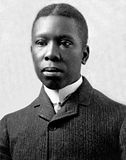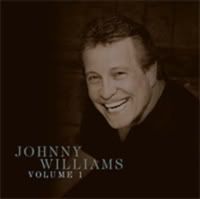
Today's post is pure poetry. Paul Lawrence Dunbar (1872-1906) went to Dayton Central High School in Ohio with the Wright Brothers in the 1890s. By the age of 21 he was a published poet, and soon had built a national reputation. Frequently using dialectical spelling and grammar in his writing, he is sometimes for this accused of pandering to the prevalent image of the 'plantation negro', a judgement that neatly sidesteps any examination of the actual content of his writing. Here is one of his best known poems, We Wear The Mask, written without dialect voice, that helps to put into context the meaning of his other works and disarms the critics:
We wear the mask that grins and lies,
It hides our cheeks and shades our eyes--
This debt we pay to human guile;
With torn and bleeding hearts we smile
And mouth with myriad subtleties.
Why should the world be over-wise,
In counting all our tears and sighs?
Nay, let them only see us while
We wear the mask.
We smile, but oh great Christ, our cries
To Thee from tortured souls arise.
We sing, but oh the clay is vile
Beneath our feet, and long the mile;
But let the world dream otherwise,
We wear the mask!
In other words, his other poems may well have sold to some northern readers as tales of 'happy folk way down south'; but the same poems in fact treat the subject with dignity that is only hidden by our own prejudices towards the 'correct' form of written language.
Some critics, such as Kenny J. Williams, mock Dunbar for his pretensions to speak for black Americans, pointing to his Ohio birth, not being a slave himself (yet why should people assume that Dunbar is writing about antebellum slavery?!), white friendships and even criticising his caring mother for 'shielding' him from contemporary racism (how exactly she would achieve this I find hard to fathom...).
In When Malindy Sings, Dunbar goes to great lengths to attempt to describe the technical prowess of blues singing as it then was practised, while mocking the limitations of the european musical tradition. That contemporary white readers, and modern critics, might sometimes fail to spot this, is their problem... Let the world dream otherwise, we wear the mask.
G'way an' quit dat noise, Miss Lucy --
Put dat music book away;
What's de use to keep on tryin'?
Ef you practise twell you're gray,
You cain't sta't no notes a-flyin'
Lak de ones dat rants and rings
F'om de kitchen to be big woods
When Malindy sings.
You ain't got de nachel o'gans
Fu' to make de soun' come right,
You ain't got de tu'ns an' twistin's
Fu' to make it sweet an' light.
Tell you one thing now, Miss Lucy,
An' I'm tellin' you fu' true,
When hit comes to raal right singin',
'T ain't no easy thing to do.
Easy 'nough fu' folks to hollah,
Lookin' at de lines an' dots,
When dey ain't no one kin sence it,
An' de chune comes in, in spots;
But fu' real melojous music,
Dat jes' strikes yo' hea't and clings,
Jes' you stan' an' listen wif me
When Malindy sings.
Ain't you nevah hyeahd Malindy?
Blessed soul, tek up de cross!
Look hyeah, ain't you jokin', honey?
Well, you don't know whut you los'.
Y' ought to hyeah dat gal a-wa'blin',
Robins, la'ks, an' all dem things,
Heish dey moufs an' hides dey faces
When Malindy sings.
Fiddlin' man jes' stop his fiddlin',
Lay his fiddle on de she'f;
Mockin'-bird quit tryin' to whistle,
'Cause he jes' so shamed hisse'f.
Folks a-playin' on de banjo
Draps dey fingahs on de strings--
Bless yo' soul--fu'gits to move em,
When Malindy sings.
She jes' spreads huh mouf and hollahs,
"Come to Jesus," twell you hyeah
Sinnahs' tremblin' steps and voices,
Timid-lak a-drawin' neah;
Den she tu'ns to "Rock of Ages,"
Simply to de cross she clings,
An' you fin' yo' teahs a-drappin'
When Malindy sings.
Who dat says dat humble praises
Wif de Master nevah counts?
Heish yo' mouf, I hyeah dat music,
Ez hit rises up an' mounts--
Floatin' by de hills an' valleys,
Way above dis buryin' sod,
Ez hit makes its way in glory
To de very gates of God!
Oh, hit's sweetah dan de music
Of an edicated band;
An' hit's dearah dan de battle's
Song o' triumph in de lan'.
It seems holier dan evenin'
When de solemn chu'ch bell rings,
Ez I sit an' ca'mly listen
While Malindy sings.
Towsah, stop dat ba'kin', hyeah me!
Mandy, mek dat chile keep still;
Don't you hyeah de echoes callin'
F'om de valley to de hill?
Let me listen, I can hyeah it,
Th'oo de bresh of angels' wings,
Sof' an' sweet, "Swing Low, Sweet Chariot,"
Ez Malindy sings.






No comments:
Post a Comment